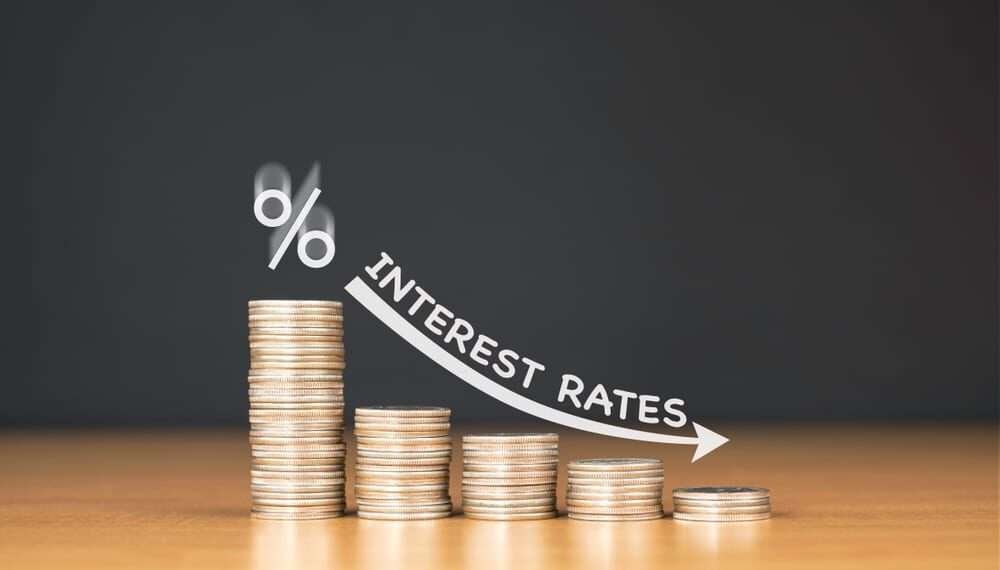In a historic turn of events, Ghana’s interest rates have plummeted for the 10th consecutive week, marking a significant shift in the country’s interest rate dynamics.
This unprecedented decline comes amidst a backdrop of robust demand for treasury bills, showcasing investors’ confidence in the nation’s economic stability despite looming uncertainties.
The latest data reveals a remarkable downward trend in interest rates across various tenures. The yield on the 91-day bill has dipped by 25 basis points to 26.74%, while the 182-day bill has witnessed a decrease to 29.24% from 29.49% in the preceding week. Similarly, the yield on the 364-day bill has seen a decline of 16 basis points to 29.84%.
One of the most striking aspects of this development is the government’s overwhelming success in its debt auctions. The acceptance of all bids tendered amounted to a staggering GH¢4.83 billion, underscoring the investors’ appetite for Ghana’s sovereign debt instruments. This figure represents approximately 12% oversubscription, indicating a high level of confidence in the country’s fiscal management.
Breaking down the numbers further, it’s evident that demand for shorter-term bills remains particularly robust. For instance, bids totaling GH¢2.72 billion were tendered for the 91-day bill, accounting for 56.3% of the total bids received. Equally impressive is the fact that the government accepted the entire amount tendered for this tenure, reflecting the buoyant market sentiment.
Similar Trend Across Other Bill Categories
A similar trend is observed across other bill categories, with all GH¢919.40 million bids for the 182-day bill and GH¢1.18 billion bids for the 364-day bill being accepted by the government. Such overwhelming response from investors underscores their confidence in Ghana’s economic trajectory and its ability to honor its debt obligations.
The remarkable decline in interest rates is not without its underlying factors. February 2024 witnessed a sharp drop in yields, attributed largely to the robust liquidity in the money market. This liquidity surge has outweighed any potential upside risks stemming from a slight uptick in January 2024 inflation, indicating a favorable balance in market dynamics.
A closer look at the month-on-month changes in yields provides further insights into this phenomenon. The 91-day yield saw a substantial decrease of 131 basis points to 27.3%, while the 182-day yield dropped by 135 basis points to 29.8%.
Similarly, the 364-day yield experienced a significant decline of 150 basis points to 30.3%. Such pronounced shifts underscore the magnitude of the current market dynamics and the consequential impact on investors’ returns.
While the decline in interest rates is undoubtedly a positive development for borrowers, it also carries broader implications for the economy. Lower interest rates can stimulate investment and consumption, thereby fueling economic growth. Moreover, reduced borrowing costs can alleviate fiscal pressures on the government, allowing for more sustainable debt management practices.
However, it’s essential to remain vigilant amid these favorable conditions. Upside risks, though currently subdued, may resurface in the future, necessitating prudent fiscal and monetary policies to safeguard against potential shocks. Additionally, sustaining investor confidence through transparent governance and effective economic management will be crucial in maintaining the momentum of this positive trend.
Meanwhile, Ghana’s historic decline in interest rates reflects a confluence of factors, including robust market demand, ample liquidity, and prudent fiscal management. The government’s successful debt auctions underscore investor confidence in the country’s economic prospects. While the current environment presents promising opportunities for growth, it also warrants a cautious approach to ensure long-term sustainability and resilience against future uncertainties.
READ ALSO: BoG Predicts Cocoa Prices to Surge to $4,922 Per Tonne





















